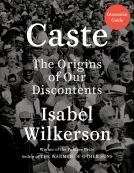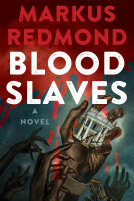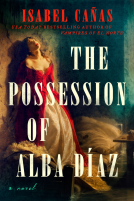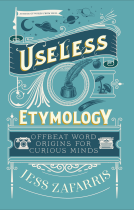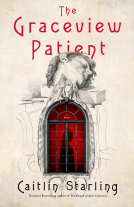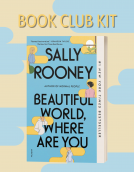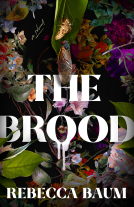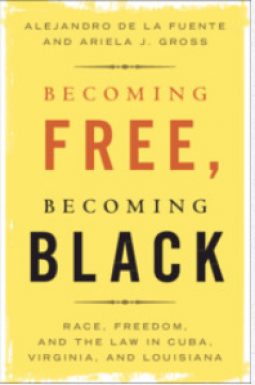
Becoming Free, Becoming Black
Race, Freedom, and Law in Cuba, Virginia, and Louisiana
by Alejandro de la Fuente, Ariela J. Gross
This title was previously available on NetGalley and is now archived.
Send NetGalley books directly to your Kindle or Kindle app
1
To read on a Kindle or Kindle app, please add kindle@netgalley.com as an approved email address to receive files in your Amazon account. Click here for step-by-step instructions.
2
Also find your Kindle email address within your Amazon account, and enter it here.
Pub Date Jan 21 2020 | Archive Date Jan 17 2020
Talking about this book? Use #BecomingFreeBecomingBlack #NetGalley. More hashtag tips!
Description
How did Africans become "blacks" in the Americas?
Becoming Free, Becoming Black tells the story of enslaved and free people of color who used the law to claim freedom and citizenship for themselves and their loved ones.
Their communities challenged slaveholders' efforts to make blackness synonymous with slavery.
Looking closely at three slave societies - Cuba, Virginia, and Louisiana - Alejandro de la Fuente and Ariela J. Gross demonstrate that the law of freedom - not slavery - established the meaning of blackness in law.
Contests over freedom determined whether and how it was possible to move from slave to free status, and whether claims to citizenship would be tied to racial identity.
Laws regulating the lives and institutions of free people of color created the boundaries between black and white, the rights reserved to white people, and the degradations imposed only on black people.
Available Editions
| EDITION | Hardcover |
| ISBN | 9781108480642 |
| PRICE | $24.95 (USD) |
Featured Reviews
Alejandro de la Fuente and Ariela J. Gross's Becoming Fee, Becoming Black: Race, Freedom, and Law in Cuba, Virginia, and Louisiana is an academic deep-dive into the history of the relationship of 'blackness' and slavery, particularly in legal precedence, in historical slave societies in Cuba, Virginia, and Louisiana. The beauty this treatment on the subject of slavery is how it highlights the efforts within each slave society from the enslaved to gain their freedom whereas most other books on the subject give more focus to the cessation of slavery from the initiative of the 'whites' or Europeans.
This is not an enjoyable read. The writing quite challenging and academic in tone and the topic is heavy. However, it's an important read and one that will serve to enrich scholar's understanding of the topic.
Thank you to Alejandro de la Fuente and Ariela J. Gross, Cambridge University Press, and NetGalley for allowing me access to the electronic advance release copy of book for review. As always all opinions are my own.
 Anita S, Librarian
Anita S, Librarian
This is an excellent book that chronicles how free people of colour got their freedom in Cuba, as well as the US states of Virginia and Louisiana mostly in the 1800s. It traces how Cuba's Iberian influence meant that they already had their own set of codes and laws for the treatment of people and colour as well as a slavery system and contrasts this with how things operated in Virginia and Louisiana, and how the differences in British and French law as well as Spanish added to how the white lawmakers and influencers created their systems by which to "classify" (for lack of a better term) what constituted a black person at a certain time and what did not. The book also chronicles cases of people who tried to prove in a court of law that they were white, and the parameters used to establish whiteness, such as "virtuous deeds" and respect among other whites, etc.
It was an eye-opening look at a sub-topic of this historical area, and I appreciated that it was written with the general reader in mind and not too academic or stuffy, and it did not use overly complicated language. I also liked the division overall of how the book was organized and the order in which ideas were discussed. As well, it was helpful from the introductory material to know more about the scholars involved and their respective backgrounds.
Overall, I feel that readers who want to know more about this subject will have excellent source material to engage with in "Becoming Free, Becoming Black."
Becoming Free, Becoming Black is a deeply researched non fiction that provides the reader a detailed understanding of the legal and cultural aspects of slavery. The book is, as its description states, a primary source review of legal precedent around slavery in Cuba, Louisiana, and Virginia.
My personal preference for historical non fiction is more towards a writing style that feels more like a novel than a literature review. I also received the book as an advanced reader ebook so it lacked many final edits and touches that would make reading an ebook easier. I make an assumption here that the final version will include a table of contents, hyperlinked footnotes, and formatted tables and charts. I know that the lack of these added to the challenge of reading such a richly researched book.
I found the stories of the people throughout history to be highly interesting but I didn't find the book to be easily accessible and readable. I found myself skimming a great deal through densely packed paragraphs. As an academic myself, I can appreciate the writing style. And I find the subject matter incredibly important. However, overall I found this book to be a worthwhile, but challenging read.
A comprehensive and academic look at the road to freedom for many enslaved and what achieving that freedom meant. It's a common misconception that enslaved African people in the Americas and the Caribbean merely accepted their fate of enslavement, waiting passively for the 19th century when Europeans would finally see the immorality of slavery. In reality, enslaved people fought against slavery from the beginning, both violently and through the legal courts. It was a struggle they endured for the full 300 years of the transatlantic slave trade.
BECOMING FREE, BECOMING BLACK looks at the societies of Cuba, Virginia and Louisiana to investigate the journey to freedom for enslaved peoples in these communities and the difficulties those in power had in accepting the status of freed-person for those who had brought in as slaves. This led to a classification of "black" that defined formerly enslaved people in a way that made it legally acceptable to deny them the rights of citizens.
This book is great because it shines a light on a part of history that is often and pushed aside. The fight for freedom was not done on behalf of enslaved people as they stood by passively but one that they began and were gradually supported in. It is incredibly academic, which at times might be difficult to read if you are unused to reading dense academia but incredibly informative.
Readers who liked this book also liked:
Silvia Moreno-Garcia
Historical Fiction, Literary Fiction, Sci Fi & Fantasy
We Are Bookish
General Fiction (Adult), Literary Fiction, Women's Fiction
